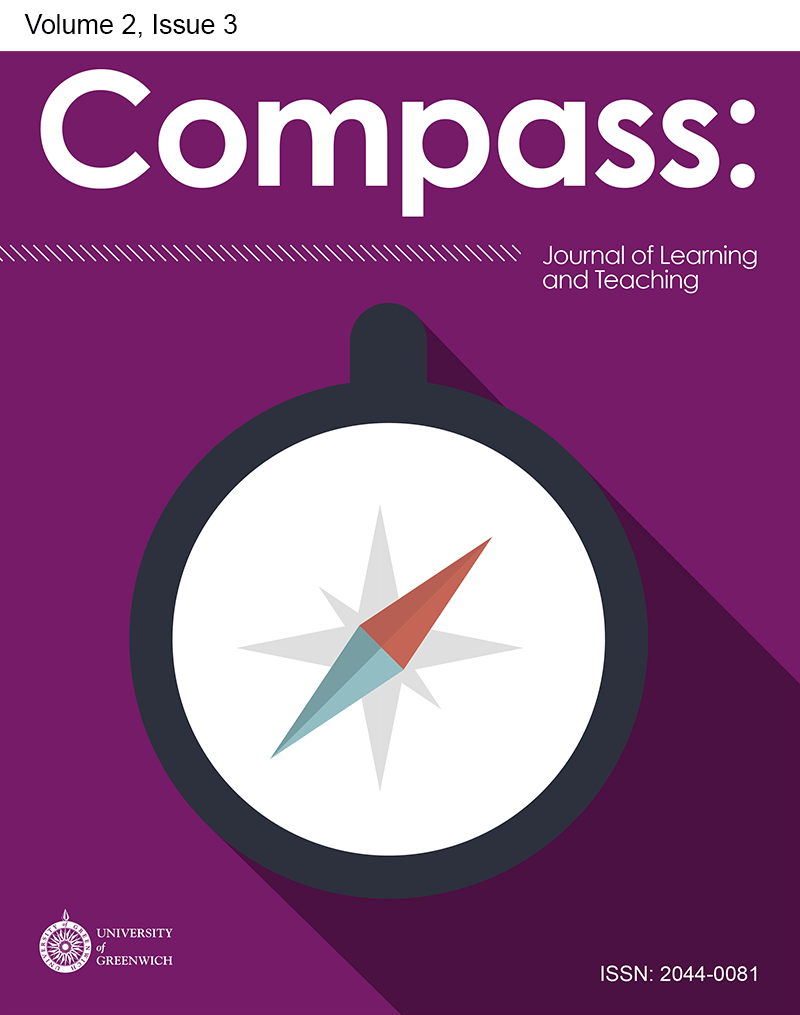The learningscape of a virtual design atelier
DOI:
https://doi.org/10.21100/compass.v2i3.45Abstract
The development of e-learning platforms is fundamentally changing the nature of education across all disciplines. Art and design education has traditionally taken place within a studio environment and its model of teaching and learning has been informed by the ‘atelier’ approach which has a distinctive educational and cultural history. Signifi cant pressures arise today in undergraduate art and design education and partly these drive the need to establish an effective and viable modern studio experience. Not only must any new studio support student learning of practice and principles, for example, by allowing students to work alongside experts, it must foster the community and culture of the creative industries. As if this wasn’t diffi cult enough, any innovation in teaching and learning must not incur the huge costs and resource demands of our current models of art and design education and it must be scalable to provide a stimulating experience for large numbers of students with diverse backgrounds, abilities and needs. This paper reports on a suite of studies that were carried out as part of a JISCfunded project titled ATELIER-D. The aim of the project was to create an online virtual design learning environment that replicates and improves the features of traditional face-to-face studio education. The paper makes reference to new curricula at the Open University, particularly a new FHEQ level 4 online design course fi rst presented in February 2010 to 350 students.
Downloads
Published
How to Cite
Issue
Section
License
Compass: Journal of Learning & Teaching provides immediate open access to its content on the principle that making research freely available to the public supports a more equitable global exchange of knowledge.
Works are released under the default licence of Creative Commons Attribution 4.0 International (CC BY), which provides unrestricted use, distribution, and reproduction in any medium, provided the original work is properly cited. If authors require a divergent licence, please contact the Scholarly Communications Manager at scholarlycommunications@greenwich.ac.uk.
Authors of articles published in Compass: Journal of Learning & Teaching remain the copyright holders to their published work and grant third parties the right to use, reproduce, and share the article according to terms of the Creative Commons license agreement applied to the work by Compass: Journal of Learning & Teaching.
Self-archiving policy: authors are permitted, and encouraged, to deposit any version of their article - submitted, accepted, and published versions - in subject and institutional repositories at any time.
If you have any queries about the choice of license, or which to discuss other options, please contact the Scholarly Communications Manager at scholarlycommunications@greenwich.ac.uk.



